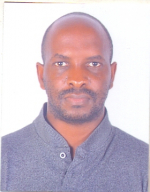Jennifer Verdolin
ID:
|
Establishing a Long-Term Behavioral and Ecological Monitoring Research Program in Queen Elizabeth Conservation Area
REFNo: NS841ES
This research aims to explore several critical issues affecting savannah ecosystems:
1. Impact of Macro and Microplastics on Wildlife: Plastic pollution is an emerging threat to wildlife health in savannah ecosystems. Both macroplastics and microplastics can cause physical harm, ingestion issues, and toxicological effects in wildlife, disrupting health, reproduction, and survival rates.
2. Sources of Plastic Pollution: Identifying and understanding the critical sources of plastic pollution within and between communities is essential. This includes examining local waste management practices, the role of tourism, and community awareness and behaviors regarding plastic use and disposal.
3. Animal Movement Patterns and Ecological Impact: Changes in animal movement patterns, driven by factors such as habitat fragmentation, climate change, and human disturbances, can significantly affect feeding ecology and population dynamics of predators, prey, and other fauna. Understanding these changes is vital for predicting ecological outcomes and managing wildlife populations.
4. Bush Encroachment Patterns and Drivers: Bush encroachment, the process where woody plants invade grassland areas, alters the structure and function of savannah ecosystems. This study will characterize the patterns of bush encroachment and investigate the factors driving these changes in different zones of the park, such as fire regimes, grazing pressure, and climatic variables.
5. Disease Outbreaks and Pathogen Evolution: Disease outbreaks, including anthrax, pose a significant threat to wildlife populations. This research will focus on understanding the patterns of these outbreaks, how pathogens are evolving, and predicting future impacts on wildlife health and ecosystem stability.
|
USA |
2024-10-31 15:52:31 |
2027-10-31 |
Natural Sciences |
Non-Clinical Trial |
Non-degree Award |

|
Valence Mfitumukiza
ID: UNCST-2024-R004532
|
Enteric pathogens and intestinal injury in Ugandan children with malaria
RefNO: KABREC-2024-155
REFNo: HS4732ES
To examine the association of invasive enteric pathogens with stool and circulating host markers of intestinal and systemic inflammation,To define the frequency of common enteric pathogens among children with malaria and diarrhea, comparing to controls without malaria and/or diarrhea.,To characterize enteric pathogens in children with falciparum malaria and diarrhea as potential drivers of intestinal leak and systemic inflammation,
|
Uganda |
2024-10-31 15:49:23 |
2027-10-31 |
Medical and Health Sciences |
Non-Clinical Trial |
Non-degree Award |

|
Antje Daniel
ID: UNCST-2024-R003872
|
"New kids on the block”? Youth environmental engagement and Fridays for Future. An intersectional and global perspective
REFNo: SS3040ES
This new environmental youth engagement as a young and quickly developing movement has not received in-depth academic attention, neither in the field of youth studies nor in social movement studies, especially not youth engagement in the Global South (see below). The motives of youth and their particular understandings of engagement remain insufficiently investigated. In addition, there is increasing criticism of youth environmental activism, namely that FFF is at least in Europe ‘white’ and supported by a well-educated middle-class elite leading to the accusation that it reproduces hierarchies (see below). However, there are hardly any academic studies that examine privileges, hierarchies and discrimination within FFF from an intersectional perspective. In order to respond to these research gaps an intersectional perspective is used to understand the motives and activism of youth in Austria, Bangladesh and Uganda and thereby their global interrelatedness. This scientifically necessary and timely research is also politically relevant since youth are acting at the forefront of environmental movements. In addition, youth engagement participants have become increasingly integrated into the international politics of the UN and are in dialogue with politicians. It can be argued further that youth engagement is not ‘just’ a certain stage of life but that it lays the foundation for transformation processes (Harré 2016; Riemer et al. 2016). Young advocates are frequently those taking up important political and social leadership in the future due to their interest and experience of advocacy (Giugni 1998; Leistner 2018): They are a “cohort of citizens who will be active participants in democracy” (Fischer 2019, 430).
Because a new youth activism emerged which is unique due to its global scope and the low average age new scientific perspectives are needed to analyse this phenomenon: A synthesis of youth and civil society studies combined with intersectionality and a comparative case study design offer an original analytical framework. This framework will provide in-depth knowledge on context-specific differences of youth engagement in Austria, Bangladesh and Uganda and commonalities of global youth activism and its activism towards ecological transformation. This research is needed scientifically because FFF is one of the major civil society players in global environmental politics and in manifold national contexts.
|
Germany |
2024-10-31 15:48:00 |
2027-10-31 |
Social Science and Humanities |
Non-Clinical Trial |
Non-degree Award |

|
Julius Okuni Boniface
ID: UNCST-2019-R000963
|
Molecular evolution of Mycobacterium avium subspecies paratuberculosis (MAP) in Africa (Phase II)
REFNo: NS860ES
i) To determine the occurrence of Mycobacterium avium subspecies paratuberculosis in water and animal products
ii) To determine the persistence of MAP in the farm environment in Uganda
iii) To determine gut microbiome profile of animals infected with MAP
v) To identify virulence factors of African MAP strains
vi) To investigate the biology of susceptibility and resistance of cattle to MAP
|
Uganda |
2024-10-30 12:12:45 |
2027-10-30 |
Natural Sciences |
Non-Clinical Trial |
Non-degree Award |

|
Stephen Ojiambo Wandera
ID: UNCST-2021-R012147
|
Substance and Alcohol Use, Dating Violence, and Sexually Transmitted Infections among Makerere University Students in Kampala Uganda
REFNo: SS3276ES
1.3 Study Aims
Therefore, this study aims to investigate the prevalence and correlates of alcohol use, drug use, dating violence (DV), depression, and sexually transmitted infections risk among University Students in Uganda.
Specific aims of the study include:
Aim 1: To determine the prevalence and correlates of alcohol use, drug use, and dating violence among students at Makerere University, Kampala, Uganda.
Hypothesis 1: Alcohol and DV risk profiles will be significantly different among male and female students and socio-demographics (age and sex, socio-economic status, and environmental factors).
Aim 2: To estimate the association between dating violence and sexually transmitted infections risk among students at Makerere University, Kampala, Uganda.
Hypothesis 2: The prevalence of HIV risk and sexually transmitted infections will be greater among science students compared to those from the arts and humanities.
Analysis: We will determine the risk factors for dating violence, Intimate Partner Violence, HIV risk, STIs
Aim 3: To determine the association between dating violence and depression among students at Makerere University.
|
Uganda |
2024-10-23 18:02:34 |
2027-10-23 |
Social Science and Humanities |
Non-Clinical Trial |
Non-degree Award |

|
BYONA STELLA MARY
ID: UNCST-2024-R002159
|
ICT and E-Passport management in Uganda Immigration Service: A case of Directorate of Citizenship and Immigration Control (2008-2023)
REFNo: SS3210ES
General Objective
The study analyses the effect of ICT and E-Passport Management as a shift from the Machine Readable Passport to the E-Passport in relation to the citizens’ accessibility and the use of a National ID as a new requirement for the Passport in Uganda.
Specific Objectives
1. To understand the Preparedness of Immigration Service Office in the use of ICT and E-Passport as a shift from the Machine Readable Passport to the E-Passport in Uganda.
2. To analyze the citizens’ accessibility to the use of ICT and E-Passport as a new technology innovation in Uganda.
3. To assess the effect of the use of the National ID as a new requirement for the E-Passport in Uganda.
|
Uganda |
2024-10-23 18:01:16 |
2027-10-23 |
Social Science and Humanities |
Non-Clinical Trial |
Degree Award |

|
Edgar Mulogo Mugema
ID: UNCST-2023-R008170
|
After the flood: Optimal Strategies to Prevent Malaria Epidemics Caused by Severe Flooding
REFNo: HS5041ES
1. Determine the effectiveness of chemoprevention with or without peri-domestic larvicide application to reduce the incidence of P. falciparum malaria after severe flooding. 2. Elucidate the dynamics of vector populations, feeding behaviors, and sporozoite rate in affected villages up to one year after flooding. 3.Evaluate the relative cost-effectiveness of chemoprevention (Aim 3A) and assess social and economic impacts on households.,The objective of this proposal is to evaluate the effectiveness of a targeted, time-limited malaria chemoprevention intervention with and without complementary larval source management (LSM) to reduce excess disease burden in a perennial, high-transmission setting where severe flooding is frequent and relatively predictable. ,
|
Uganda |
2024-10-23 18:00:25 |
2027-10-23 |
Medical and Health Sciences |
Non-Clinical Trial |
Non-degree Award |

|
Ruth Kigozi Nassali
ID: UNCST-2021-R013025
|
Optimizing malaria programming through quality routine surveillance: evaluating a package of data quality and use interventions in Uganda
REFNo: HS5054ES
2. To understand the main challenges and enablers to data quality and use improvements and their sustainability,1. To assess the quality and use of routine health facility malaria data in target districts before, during and after implementation of a package of interventions ,The study aims to improve the quality and use of routine malaria data in two districts of Uganda,
|
Uganda |
2024-10-23 17:59:08 |
2027-10-23 |
Medical and Health Sciences |
Non-Clinical Trial |
Non-degree Award |

|
Rachel Byarugaba
ID: UNCST-2024-R003083
|
CONSUMER PREFERENCES OF PROCESSED LEAF AMARANTH (AMARANTHUS SPP.) PRODUCTS
REFNo: A470ES
This main objective of the study is to determine the factors influencing the consumer preferences of processed leaf amaranth products by considering both emotional and sensory profiling. The objectives are to: 1) measure the consumers’ sensory perceptions and emotional responses to the products 2) investigate the relationship between the sensory and emotional attributes of the products and liking 3) examine the influence of food neophobia on the acceptability and emotional responses of the products.
|
Uganda |
2024-10-23 17:57:44 |
2027-10-23 |
Agricultural Sciences |
Non-Clinical Trial |
Degree Award |

|
Rhona Mijumbi M
ID: UNCST-2023-R006843
|
Digital Gender-Inclusive Tools for Evidence Use
REFNo: SIR425ES
To pilot and test the digital gender tools in (3) to improve the timeliness, efficiency, and effectiveness of evidence-informed decision-making processes,To apply newer technologies, such as Artificial intelligence and machine learning in the design and/ or modification of new and/ or existing digital tools to enhance the efficiency and effectiveness within EIPM processes,To identify existing digital tools and new digital technologies, such as Artificial intelligence and machine learning, that facilitate the timeliness, efficiency, and effectiveness of evidence-informed decision-making processes,To map the demand and opportunities for digital gender tools in evidence-informed decision-making processes with an aim of improving the timeliness, efficiency, and effectiveness of evidence-to-policy,To explore the role of- and develop digital gender-inclusive tools to enhance the timeliness, efficiency, and effectiveness of evidence-informed decision-making processes.,
|
Uganda |
2024-10-23 17:48:16 |
2027-10-23 |
Engineering and Technology |
Non-Clinical Trial |
Non-degree Award |

|
Rapheal Wangalwa
ID: UNCST-2022-R008718
|
UNDEREXPLORED MYCORRHIZAL FUNGAL COMMUNITIES OF BWINDI IMPENETRABLE NATIONAL PARK (BINP), UGANDA (FUNGI-BIP)
REFNo: NS869ES
i. To determine the diversity of mycorrhizal fungi in the three altitudinal zones of Bwindi Impenetrable National Park using soil DNA metabarcoding.
ii. To determine the influence of vegetation characteristics on the diversity and occurrence of Mycorrhizal fungi in the three altitudinal zones of Bwindi Impenetrable National Park.
iii. To establish the variation in physical and chemical parameters of rhizosphere soil collected from three altitudinal zones of Bwindi Impenetrable National Park.
|
Uganda |
2024-10-23 17:44:42 |
2027-10-23 |
Natural Sciences |
Non-Clinical Trial |
Non-degree Award |

|
Adam Drolet
ID: UNCST-2024-R002915
|
Improving infection prevention and control practices in primary healthcare facilities: an evaluation of Aqua Research STREAM Disinfectant Generator in Uganda
REFNo: SS3183ES
Evaluate changes in microbiological cleanliness of high-touch surfaces within patient zones including surgical theatre, labor, and postnatal patient zones resulting using STREAM chlorine and commercial chlorine for disinfection,1. 1. Assess the STREAM total cost of ownership and cost-effectiveness of the STREAM for reducing the risk of hospital acquired infections and treatment costs for hospital acquired infections compared to use of existing commercial chlorine supplies in 5 health facilities across five districts,Assess the effect of the STREAM on chlorine availability and quality in health facilities,
|
USA |
2024-10-23 17:44:00 |
2027-10-23 |
Social Science and Humanities |
Non-Clinical Trial |
Non-degree Award |

|
Douglas Serwada
ID: UNCST-2024-R003939
|
Examining The Barriers and Facilitators to Accessing Comprehensive Sexual and Reproductive Health Services Among Young People with Disabilities in Mayuge District.-MAKSHSREC-2024-723
REFNo: SS3153ES
To examine the barriers and facilitators to accessing comprehensive sexual and reproductive health (SRH) services among young people with disabilities in Mayuge district.To examine the societal attitudes and cultural norms contributing to the stigma and discrimination faced by young people with disabilities in accessing sexual and reproductive health services in Mayuge district.To evaluate the extent and forms of stigma and discrimination encountered by young people with disabilities in Mayuge district and their impact on access to sexual and reproductive health services.To determine the effectiveness of existing policies and programs aimed at reducing stigma and discrimination against young people with disabilities in accessing sexual and reproductive health services.
|
Uganda |
2024-10-23 17:42:17 |
2027-10-23 |
Social Science and Humanities |
Non-Clinical Trial |
Non-degree Award |

|
FRANCIS KAMUGANGA
ID: UNCST-2022-R010959
|
Resource Efficient Concurrent Data Structures Design and Performance Analysis
REFNo: SIR145ES
To evaluate throughput and energy efficiency of the designed data structure and compare with other concurrent data structure designs.,To design and develop an efficient concurrent data structure that outperforms existing data structure designs in specific use cases.,To analyze different concurrent data structure designs in order to discover performance strengths and bottlenecks.,To improve throughput and energy efficiency of concurrent data structures by designing and developing an efficient concurrent data structure.,
|
Uganda |
2024-10-23 17:41:08 |
2027-10-23 |
Engineering and Technology |
Non-Clinical Trial |
Degree Award |

|
Catherine Mulinde
ID: UNCST-2023-R006953
|
Efficiency of adaptation to climate change induced vulnerability and household welfare in Coffee-Based Farming Systems of Uganda (EACCHS)
REFNo: A389ES
General Objective:
The overall goal of the research is to identify adaptation practices that are efficient at alleviating climate change effects and at enhancing crop productivity and household welfare in CBFS of Uganda.
Specific objectives:
a) Determine household vulnerability to climate shocks across the CBFS of Uganda.
b) Assess the variation in existing adaptation practices across different levels of household vulnerability to climate change effects among male and female coffee farmers of Uganda.
c) Evaluate the effect of climate adaptation practices on household welfare in CBFS of Uganda.
d) Assess the future efficiency of selected climate adaptation practices in sustaining crop yields in CBFS of Uganda by 2070.
|
Uganda |
2024-10-23 17:40:16 |
2027-10-23 |
Agricultural Sciences |
Non-Clinical Trial |
Non-degree Award |

|
Isaac Ssewanyana
ID: UNCST-2020-R014336
|
Performance Evaluation of the Xpert Hepatitis B Viral Load Point-of-Care Molecular Test
REFNo: HS4687ES
3. Estimate the cost of utilizing GeneXpert machines for hepatitis B viral load testing in comparison to the centralized conventional hepatitis B testing conducted by CPHL.,2. To describe the operational characteristics and ease of use of the assays and their suitability for Uganda among laboratory technicians at selected health facilities in Uganda. ,1. To verify the diagnostic accuracy of the Cepheid Xpert HBV VL platform with the TaqMan HBV test Roche platforms at CPHL. ,The overall objective of the performance evaluation is to evaluate the performance and operational characteristics of Xpert® HBV Viral Load assay intended for the quantification of HBV viral load in HBV-infected individuals and verify that they meet the minimum requirements for adoption in Uganda. We will also assess the feasibility of integrating hepatitis B viral load testing into existing GeneXpert machines in Uganda. ,
|
Uganda |
2024-10-23 17:38:07 |
2027-10-23 |
Medical and Health Sciences |
Non-Clinical Trial |
Non-degree Award |

|
Edith Wakida K
ID: UNCST-2019-R001225
|
Feasibility of a culturally tailored implementation strategy: WHO Lay Health Worker Dementia Care with Internal Facilitation from Health Assistants as supervisors
REFNo: HS5150ES
2. Evaluate the feasibility of an implementation strategy consisting of WHO Lay Health Worker Dementia Care with Internal Facilitation (WLDC+IF),1. Co-design an implementation strategy guide for the WHO Lay Health Worker Dementia Care, with Internal Facilitation (WLDC+IF) ,To develop and evaluate the feasibility of a culturally tailored implementation strategy consisting of the WHO dementia toolkit by indigenous village-based LHWs to provide dementia care at village level supported by internal facilitation (implementation support, process improvement and practice sustainment) from indigenous HAs as supervisors: the “WHO Lay Health Worker Dementia Care, with Internal Facilitation (WLDC+IF)”.,
|
Uganda |
2024-10-23 17:37:07 |
2027-10-23 |
Medical and Health Sciences |
Non-Clinical Trial |
Non-degree Award |

|
Christine Nalwadda Kayemba
ID: UNCST-2020-R014220
|
Health Education on Heart Failure in Uganda: A study on effective interventions for early diagnosis and disease prevention
REFNo: HS4323ES
How can stronger levels of trust be developed between the Medly program and local communities; and what policies would be most effective for increasing clinical access in Uganda to improve the identification of people at risk of heart failure? ,To identify resources that could be utilized to promote heart health education for health workers and community members, support heart failure prevention efforts, and increase screening of people at risk in their local communities early on,Toidentify interventions (e.g., clinical, technological, community-led) would be most effective in improving the early diagnosis of cardiovascular disease and the prevention of heart failure in Uganda,To determine factors that contribute to CVD risk at the individual, family and community level ,The objective of this project is to generate new and actionable knowledge focused on strengthening the uptake of Medly Uganda by heart failure patients through a mixed-methods research approach among Ugandan communities,
|
Uganda |
2024-10-23 17:35:52 |
2027-10-23 |
Medical and Health Sciences |
Non-Clinical Trial |
Non-degree Award |
.jpeg)
|
Esther Nanfuka Kalule
ID:
|
MID-TERM (2022) AND FINAL/EX-POST (2023) EVALUATION OF THE GAME CONNECT PROGRAMME
REFNo: SS2703ES
To learn on an ongoing basis so as to improve the design and implementation of Game Connect, as well as other ongoing (and future) ORF-funded sport for protection programmes in Uganda and beyond.
To build the evidence base on specific areas of the intervention, and to increase knowledge and understanding of the outcomes and impacts for the participants.
|
Uganda |
2024-10-23 17:34:41 |
2027-10-23 |
Social Science and Humanities |
Non-Clinical Trial |
Non-degree Award |

|
Elisa Macchi
ID: UNCST-2023-R004097
|
Gains: Perceptions of Misaligned Incentives in Health:
REFNo: SS2729ES
To understand the correlation between BMI, and wealth/earnings.
|
Italy |
2024-10-23 17:32:50 |
2027-10-23 |
Social Science and Humanities |
Non-Clinical Trial |
Degree Award |

|
| View |
|
Sort By: |
|
|
|
| |
|